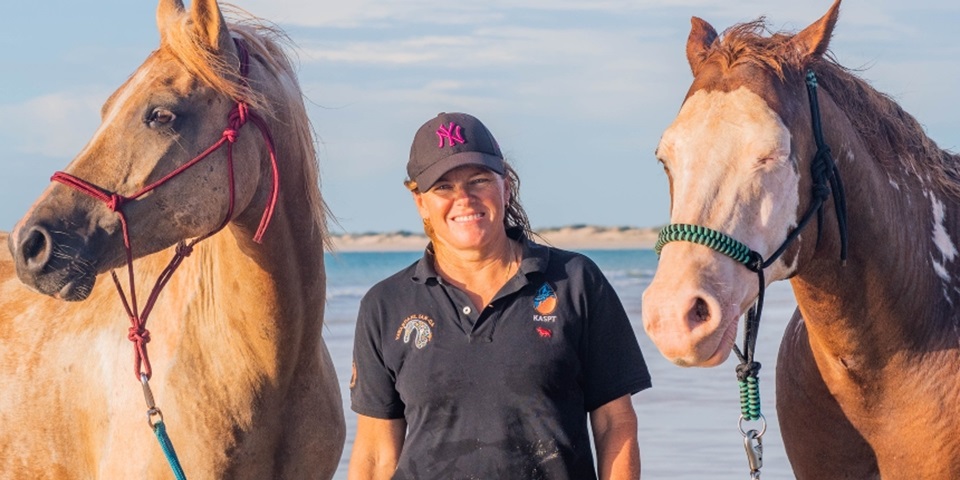The world-first horse program improving young Aboriginal lives

No matter how deadly you are, there’s no one that doesn’t need a hand from time to time. This research program proves that horses can provide that help.
Yawardani Jan-ga is a first-of-its-kind wellbeing program in the Kimberley that’s changing lives.
Developed in response to community concerns over youth social and emotional wellbeing, Professor Juli Coffin’s equine assisted learning program works with horses to build healthy relationships and coping skills among Aboriginal youth.
Yawardani Jan-ga – which translates to “horses helping” in Yawuru language– takes a strengths-based approach to the delivery of wellbeing and learning for Aboriginal youth.
This involves “hanging out” and building relationships through opportunities such as grooming, leading, haltering and specifically safe and structured time interacting with horses.
Participants are guided through these different experiences with horses, designed to increase mindfulness, self-awareness, confidence and regulation, learning new ways to be confident in themselves and in life.
Practicing these skills each week, participants become better equipped to handle other challenges in everyday life.
Every session is different, with young people working with horses, yarning about learnings and how they feel each week. Through attending these sessions, young people develop their own leadership style to support them with life’s challenges.
The benefits of human-animal relationships on neurodevelopmental processes suggests that horses offer uniquely enriching experiences that can help build those skills.
Developing new and innovative ways to engage young people in programs like Yawardani Jan-ga is particularly important for Aboriginal youth, due to cultural differences relating to the acceptability of traditional Westernised therapies based in clinical settings.
Aboriginal people have strong historical ties to horses in Australia through their work on farms and stations and are still considered some of the country’s best horsemen and women.
The equine assisted learning model provides a vehicle for Aboriginal practitioners to provide culturally secure and appropriate interventions to improve mental, emotional, social and spiritual wellbeing.
The program is a central part of the Yawardani Jan-ga Research and Advocacy Centre at the Ngangk Yira Institute for Change.